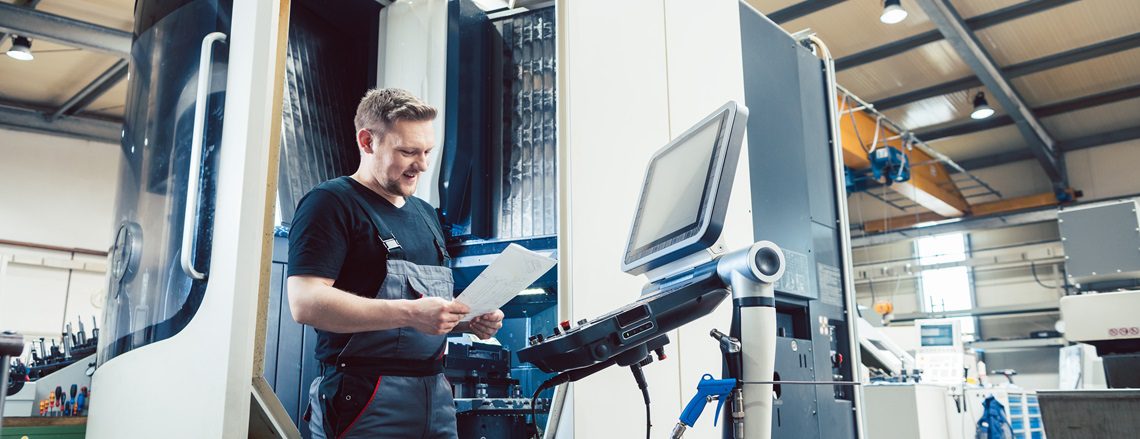
A CNC turner or operator works in the metallurgical industry, producing mechanical parts using computer numerical control (CNC) machines. As a CNC turner, you will operate CNC lathes and milling machines and need knowledge of computer programming to sculpt and finish specific component prototypes.
CNC turners or operators are key members of any industrial engineering team. Whether in the metalworking or manufacturing industries, a CNC turner or operator’s coworkers may include industrial designers, CNC machinists, CNC milling lathes, and CNC technicians. They may also work with factory managers and machine operators, as well as other specialists such as mechanical maintenance engineers, production managers and welders. Due to the precise nature of their work, CNC turners receive extensive training to handle their machines accurately and maintain high-quality standards.
CNC turners use a lathe machine to cut, sculpt, and finish prototypes of machine components, which can range from car parts to metal tools and hardware supplies. The turning operation relies on CNC machines to control the rotation speed as excess material is removed from the workpiece. This operation is distinct from milling or drilling, where the tools rotate while the workpiece remains stationary. Additionally, CNC turners must perform periodic quality control checks and report any issues to CNC programmers for necessary machine adjustments.
As a CNC turner, your tasks vary based on the degree of automation and the specific machine. However, all turners aim to cut a workpiece to the desired shape and dimensions. You need expertise in reading technical drawings before beginning the cutting process. After the cutting operations, you perform quality control checks using measuring equipment to ensure the metal piece meets the relevant tolerance specifications.
Typically, CNC turners work in factory settings, and their responsibilities vary depending on their career stage. Although CNC turners are generally found in the metallurgical industry, their expertise is required in various industries, such as automotive, automation, and hardware supplies.
While CNC turners use computer numerical control, they should also be familiar with the various types of turning lathes like manual, semi-automatic and automatic lathes. In the manual and semi-automatic turning lathes, position and guide the cutting tool for precision cutting. The automatic lathe only requires the initial setup. However, the CNC turning machines automatically execute instructions from selected programs. CNC turners can specialize in different aspects of handling computer numerical control machines. Some of these types are:
Working as a CNC turner in Holland is an excellent starting point for a professional career in various sectors, especially mechanical engineering, automation and industrial manufacturing. We are here to help you find your CNC turner job in the Netherlands. Send in your resume today or apply to be part of one of our CNC Recruitment Days. During the CNC Recruitment Days recruiters from leading companies in Holland will conduct interviews and hire CNC turners to be part of their company team.